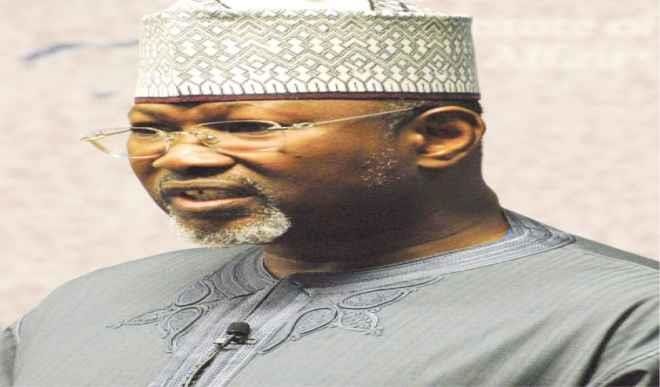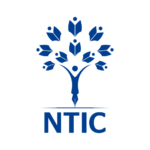
Youth have therefore, historically been notable change agents and drivers of societal transformation. Contemporarily, however, especially in the so-called developing democracies, the trend has been that of relegation of youth interests and roles, thereby pushing the youth more into poverty, alienation, and turning them into agents of destabilization and conflicts, especially in diverse developing countries.
Nigerian Youth: Nature, characteristics and predilections
The Nigerian National Youth Policy (2009) defines youths as those between the ages of 18 – 35 years. (Contrary to the global trend, it excludes those 15 – 17!) Nigeria’s total population in 2016 was projected to be 193,392,517 (NpopC July 2017). Youth population was estimated at 61,306,413 or 31.7% of the total population. This is one of the highest percentages of youth in any country.
In 2012, using National Population Commission’s (NpopC) projections, Nigeria was said to have a population of 167 million. Half or 50% of these were said to be youth in the age category of 15 – 34 years (Akande, 2014). Nigeria is said to have the largest youth population in the world within the framework of this definition, with a figure of 33.652 million. Also, 2012 statistics suggest that 11 million youth were unemployed.
Nigerian youth face tremendous challenges, of poverty, diseases such as STDs and HIV/AIDs, unemployment and marginalization and exclusion in the political economy; arguably more so, than most countries in the world. There is a dire shortage of young persons occupying the political realm, either because of disempowerment, or alienation, or their perception that their involvement would not matter, given how elections are rigged and how policies are haphazardly conceived and implemented without input from critical stakeholders.
Additionally, there is a disjuncture between the old, the middle aged and the youth, in the sense of lack of appropriate and serious platforms for solidarity, engagement and dialogue. It hasn’t always been this bad. In the First Republic, the founding fathers ensured unity of purpose, empowered the youth, mentored them, carried them along and involved them appropriately. For example, the Enahoros, the Maitama Sules, all became prominent politicians, Federal/Regional Ministers, etc., as youth. The founding fathers themselves had been involved in students and other community affairs, political struggles and leadership roles quite early in their lives. But, somewhere along the line, a rupture seems to have occurred; perhaps beginning under military rule, and especially under politics of the Second and subsequent, republics, the youth came to be generally neglected and relegated to the background.
The marginalization of youth and their disempowerment cannot be adequately addressed unless and until more and more young people, both men and women, become engaged in the political, legislative as well as policy and governance processes. We must, therefore, reconnect with the youth, empower them, mentor them responsibly, give them responsible leadership roles and enable them become the key change agents for Nigeria’s stability, unity, progress and development. Young people cannot afford to be apolitical, apathetic and indifferent to what is happening in governance and in the larger political economy. They need to get engaged and involved. Effective mechanisms and platforms need to be established to nurture and mobilize youth engagement in the wider political and policy-making processes. Credible youth leaders must necessarily help to organize and pilot such platforms of engagement.
Enhancing the role of youth in the Nigerian political economy
We must work hard in all respects to empower our youth in the Nigerian political economy. The goals of youth empowerment, as identified by UNESCO, are to nurture in the youth values, ideals and notable skills as follows:
– Positive sense of self
– Self-control
– Decision making skills
– Moral system of belief
– Pro-social connectiveness
We have to work hard, with government leading the way, and other stakeholders providing critical support, to create better opportunities for our young people so that they can explore their potentials in education, in employment, in entrepreneurship, and especially in politics and governance, and in global competitiveness as well, in all facets of life. A situation in which political and governmental processes, as Sweigart observed, “seem out of reach, out of touch and ineffective” (NDI June 28, 2017) for youth needs to addressed and be reversed.
Specific Recommendations
Given the arguments and points raised in the preceding paragraphs, and especially the predicament of youth in Nigeria, I wish to specifically make the following recommendations, which are informed by solid research of comparative global experiences:
1. Nigeria needs to adopt a “positive youth development approach”, which recognizes youth as active participants in societal development, and not merely as passive recipients of doled out goods and services.
2. Accordingly, the National Youth Policy should be urgently reviewed, enhanced and imbued with serious programs targeted at satisfying the needs and aspirations of the youth, with their active participation.
3. Youth employment and empowerment programs and projects need to be reviewed/replaced for greater effectiveness in meeting objective goals.
4. Effort should be targeted at the systematic removal of all barriers to effective youth participation in the Nigerian political economy.
5. Government should create and, with time, institutionalize a Nigerian Youth Interactive Forum, which meets annually or biennially, through which leading public officials would meet representatives of the youth; enable voices of the youth to find expression, to become in the center of governance and to drive change. This should become a sustainable participation forum for the youth in national affairs; to replace or incorporate cultural festivals, which presently are jamborees merely focusing on dances, singing, etc., consuming humongous amounts of public resources, with no substantive value-addition.
6. The three arms of government (Executive, Legislature and Judiciary) at all tiers need to carefully plan and introduce Internship schemes / programs for youth, especially those in tertiary institutions, during long vacation periods, which globally have been contributing to youth exposure, development of self-confidence, acquisition of gainful skills, and eventually nurturing youth agency. In addition, vacation job schemes, in the areas of public works (e.g. repairs and repainting of schools, hospitals, public building, etc.), which provide temporary employment and skills opportunities for the youth, with multiplier effects, should be introduced.
7. The Federal government should strive hard to implement all AU resolutions / decisions for youth engagement, empowerment and employment, which it is a signatory to. In particular, the Resolution of the AU Summit of heads of States, which required member states to endeavor to reduce youth unemployment by 2% per year from 2009 – 2018, should be resolutely implemented, through vigorous schemes of employment generation.
8. Nigerian communities must revive the constructive culture of socialization and indoctrination of youth with positive values and belief systems.
Conclusion
As Sweigart has aptly noted, “surging youth activism and leadership has the potential to change the world” (NDI April 20, 2017); and I add, to impact upon the future more positively. This potential of youth to change Nigeria for a better future must be tapped maximally No effort should be spared to encourage youth engagement, catalyze it, nurture and institutionalize it. Indeed, as Sweigart also averred, “young people are … indispensable change agents for sustainable development and the source of democratic dividend”, more especially in newly democratizing countries. Our public officials need to recognize this, and become more serious in handling youth development programs.
It is worth emphasizing, at this juncture, that “youth” is not a homogeneous category. Individual young men and women are differently and intricately linked to different social and class cleavages in a country. Even though they have many common challenges, concerns and aspirations, their approach to them will necessarily vary; coping strategies, responses and modes of engagement would differ amongst the youth, influenced by affiliation to cleavages.
Forging a united, common front, to address the multifarious and complex issues, therefore, is a difficult task. However, it is not an impossible task; it is a task that must be done. Building credible alliances, championed by credible leaders and change agents amongst the youth, is key but would require tireless sensitization, mobilization and engagement. Significantly, forging intergenerational alliances between the young, the middle and the old breeds, is the best recipe for assuring a better future for our country. In this way, the young would feel included, they would strive to add value, an amenable environment for their positive roles would be created and a smooth and seamless process of political and developmental baton-exchange would have been engendered.
The case for active engagement and participation of youth in the life of a nation and its political economy is solid, especially in new democracies, such as Nigeria, and is increasingly now being backed by evidence drawn from empirical research. For example, drawing from the findings of such research, Lagos and Rose have observed as follows:
In the new democracies of the world, the role of the youth is of special importance… older generations…include leaders of discredited undemocratic regime and many who supported or tolerated it… young persons are freer of association with excesses of the past… (“Young People in Politics…” I-IDEA).
No doubt, young people carry less excess baggage and are better placed to face the challenges of creating stability to replace the “chronic instability” of the past. But neither them alone, nor indeed, the so-called “new breed” politicians can do it alone. All hands need to be joined and placed on deck, as a by-product of credible patriotic alliances for all-inclusive engagement in national development. Adult – youth partnerships are required and these ought to be forged systematically and with sincerity of purpose, not opportunistically. As Sweigart has observed, young people not only deserve a seat at the table and must be given one, but they also aspire for more than just a seat at the table, they aspire to learn in practice how to drive the process, a role that they clearly would be called upon to discharge sooner or later.
As for the youth, there is the absolute need for a change of their mindset, from despondency, apathy and “Exit”, to hopeful and positive, can-do attitude; indeed to engagement and activism, with purposefulness and integrity. These, I believe, are the attributes of the mindset required to move Nigeria out of its current state of chaotic befuddlement, to a greater future more assured.
Nigerian young men and women must rise to get involved; to organize, not agonize! And take their destiny and our nation’s destiny in their hands. They should not allow others to hide behind, or wear, their toga to advance particularistic, non-youth agenda. They should lead to get the agenda crafted and their concerns squarely addressed.
Concluded
Being a paper delivered by Professor Attahiru M. Jega, OFR, Department of Political Science, Bayero University, Kano at the 5th Convocation Lecture, Nile University, University Village, Abuja.




